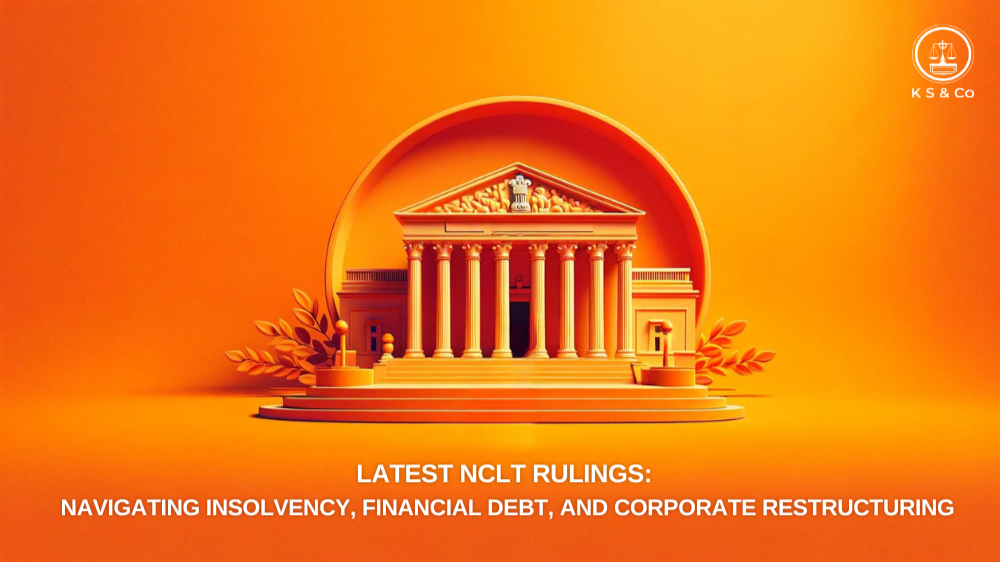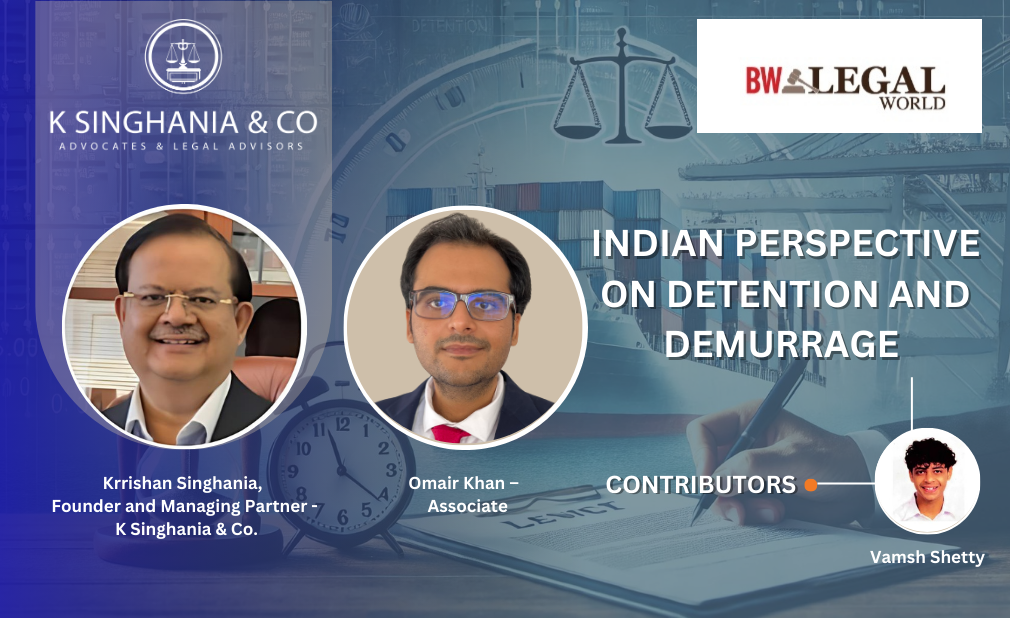India has introduced various reforms in the recent years ensuring credibility with the potential investors and strategic partners for encouraging them to invest in India. Some of these initiatives are the introduction of Startups Intellectual Property Protection (SIPP) providing 50% fee concession in patent and trademark to startups, Reforms for automation and digitalization of the whole IP registration process, reforms for expediting the process of prosecution in IP matters and so on.The Indian judiciary has made robust progress for safeguarding the rights of innovators and bringing this regime in consonance to the international standards.
Bombay High Court’s Stern Action against ‘habitual infringers’ of Intellectual Property.
In a recent landmark judgment, given by the Hon’ble Bombay High Court in the matter of Glenmark Pharmaceuticals Ltd. vs. Curetech Skincare and Anr,the Hon’ble High Court imposed heavy costs amounting to Rs. 1.5 crores against the defendant for habitually committing trademark infringement of pharmaceutical products. The dispute arose when the defendants were found selling the similar drug “CLODID B” having similar packaging and trade dress of that of the plaintiffs “CANDID B” which is a very well known antibacterial dusting powder in the market. It was the Defendant’s case that, the mark was adopted by mistake and they do not choose to contest this suit. The Courts after examining the history of the defendant, found that the defendant was a habitual offender and has been guilty of committing trademark infringement by indulging in production of sub-standard drugs which was pointed out by Central Drugs Standard Control Organisation. The Hon’ble Court imposed exemplary costs to deter the infringer from further infringing other products. The objective of the court passing such a judgment is to prevent undesirable practices in the pharmaceutical sector leading to significant public health concerns.
Delhi High Court broadens the spectrum for test of ‘Likelihood of Confusion’
In the case of Gillette Company LLC vs. Tigaksha Metallics Private Ltd., the Delhi High Court passed an order deciding to extend the ex-parte injunction restraining the defendant from infringing the Plaintiff’s mark. The Plaintiff instituted a suit seeking a permanent injunction restraining the Defendants from infringing their trademark by using similar deceptive variations of their mark. The Court opined that the Defendant mark’s phonetic and visual distinction from that of Plaintiff would not suffice the effect of association of words ‘Sword’ and ‘Talvar’ in the mind of a consumer with ordinary intellect as they would not be able to distinguish the goods on the basis of the marks. It was pointed out in the judgment that it is rather important not to decide the case purely on the basis of precedents in this area but also on the basis of the element of scientific advancements in the study of the human mind and how it functions. The Hon’ble Court applying the theory of “word association” held that there will certainly be confusion in the minds of the consumers since both the trademarks, being similar in depiction, are in relation to the same product i.e. safety razor blades. Thus, the court allowed the continuation of the temporary injunction against the Defendants and dismissed their application to set aside the interim injunction. It was pointed out in the judgment that it is rather important to create a parameter within which Trademarks conveying similar ideas should be accorded protection under Trademark law. This is because if the protection is accorded to the sense relation of a word, it raises a slippery slope as to what extent such monopoly over the sense relations be extended under the trademark law.
The Battle of Starbucks vs. Sardarbaksh.
World’s largest coffee chain Starbucks Corporation filed a trademark infringement case against a Delhi based coffee shop brand, Sardarbuksh for using “deceptively similar” to the Starbuck’s trademark visually as well as phonetically. The Delhi High Court while dealing with this matter, directed Sardarbuksh to change its name to Sardar-Ji-Baksh and to stop using the round logo as well as to refrain itself from using any green colour in their logo or as a principal colour in any of their marketing materials. The Court while admitting the mutually agreed settlement terms of both the parties, that if any third party uses the mark ‘BAKHSH’, then the defendants shall also have the right to file a suit against the said violator.
Radio Mirchi’s win over Radio Nasha
In the recent case of Entertainment network (India) Ltd. vs. HT Media, the Delhi High Court held that the mark of ‘Radio Nasha’ of HT Media was deceptively similar to that of Entertainment Network (India) Ltd’s trademark ‘Pehla Nasha’. Entertainment Network (India) Ltd. trading as ‘Radio Mirchi’ launched its 24 hours non-stop free radio channel under the Trademark ‘PEHLA NASHA’ in 2014. In the year 2016, the Defendant launched a new FM radio channel under the name ‘RADIO NASHA’ which was alleged to be identical/deceptively similar to the Plaintiff’s trademark. The Court founding merit in the contentions of the plaintiff held that ‘radios were hardly used anymore and that people can easily access radio music through their smartphones. Thus, it cannot be said that the instrument, through which the music under the mark ‘PEHLA NASHA’ of the Plaintiff and music under the mark ‘RADIO NASHA’ of the Defendant can be accessed are different or that the same obliterates the similarity/deceptive similarity.’ It also held that, the plaintiff, after acquiring more goodwill in the mark ‘PEHLA NASHA’ cannot be prevented from also providing services of an FM Radio under the said mark since both fall in the same class of goods / services in which goods and services are classified under the Trade Mark laws. The Court restraining the Defendant stated that the balance of convenience is in favour of the plaintiff and against the defendant. The loss of even one patron confusing the defendant for the plaintiff would be irreparable.
Merely having a similar or deceptively similar trademark to the registered trademark does not constitute an infringement.
In the case of Mankind Pharma Ltd. vs. Chandra Mani Tiwari the Delhi High Court has held that, to constitute infringement under Section 29(5), it is required to have the same or identical trade name and merely having a similar or deceptively similar trademark to the registered trademark would not constitute infringement. The case arose when Mankind Pharma Ltd. having registered proprietor of the mark ‘MANKIND’ in 42 different classes and has been using the mark by adding suffix and prefix ‘Man’ and ‘Kind’ in various products manufactured by them, filed a suit for infringement against MERCYKIND PHARMACEUTICALS PRIVATE LIMITED owned by Mr. Chandra Mani Tiwari for infringing the mark MANKIND and passing off its products by adopting and using the trade name ‘MERCYKIND PHARMACEUTICAL PRIVATE LIMITED’. The Court while passing the order stated that, “there would have been infringement under Section 29(5), if the Defendants, as part of their name, had used ‘MANKIND’ or any other registered trade mark of the Plaintiff. Merely because ‘MERCYKIND’ in the name of Defendant No.2 Company may be deceptively similar to ‘MANKIND’ or any other registered trade mark of Plaintiff with ‘KIND’ as prefix or suffix, would not amount to infringement under Section 29(5).’ The court while distinguishing between the infringement of trademark under section 29(5) of the act and that of section 29 from sub-section (1) to (4) held that, ‘to make out a case of infringement by use of ‘trade name’ under Section 29(5), mere similarity or deceptive similarity with the registered trademark was not sufficient and that there has to be exact use of registered trademark or part of it as the trade name of the business. The test of “similarity or deceptive similarity” was applicable only for cases of infringement by use of ‘trade mark’ covered by sub-sections (1) to (4) of Section 29.’






